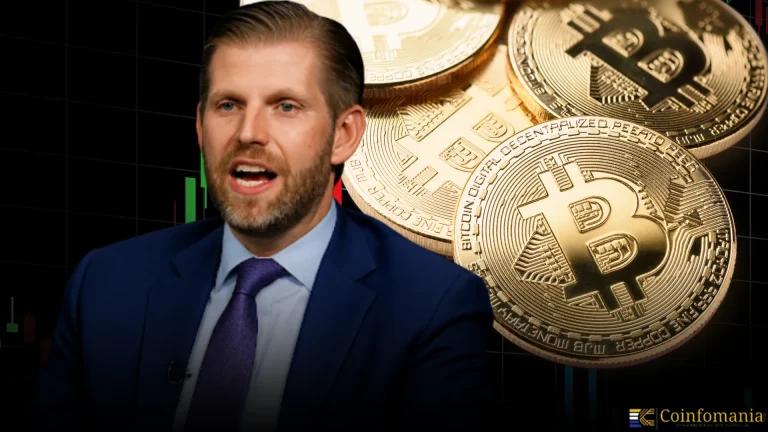CoinDCX CEO Sumit Gupta Responds to Supreme Court Remarks on Crypto Regulation
Discover how India crypto regulation is evolving as courts urge expert-led policies and CoinDCX CEO weighs in on the taxation debate.

Quick Take
Summary is AI generated, newsroom reviewed.
CoinDCX CEO supported Supreme Court remarks, urging clear regulation if crypto profits are already taxed.
India’s Supreme Court questioned the absence of crypto regulation, emphasizing expert input and rejecting outright bans.
A high-profile crypto fraud case triggered debates, pushing for updates from the government by July on regulatory steps.
On May 20, CoinDCX CEO Sumit Gupta commented on the Supreme Court crypto related remarks. He called the court’s view a pro-crypto development based on taxation observations. The court noted a thirty percent tax on crypto profits, which shows practical recognition of digital assets. Gupta argued that tax collection implies a need for oversight and rules to align legal recognition. He backed expert consultation on regulatory design as suggested by the court. He also expressed hope for a forthcoming inter-ministerial discussion paper soon. The comments revived a long-standing debate on India crypto regulation.
Supreme Court Questions Lack of Crypto Regulation
The Supreme Court crypto debate started as the bench spoke on May 19 during fraud case hearings. Justices Surya Kant and NK Singh led the session and posed pointed questions. They asked why no formal rules govern digital currency use in India. The bench noted that banning cryptocurrencies may harm the economy and remain impractical. They stressed that oversight frameworks must be established without delay. The court also emphasized expert advice to draft suitable regulatory measures. These remarks underline the urgency for clear legal standards in digital asset trading.
Court Urges Regulation Over Ban on Cryptocurrencies in India
Debates on India crypto regulation date back years, yet formal rules remain absent. The court recalled a hearing nearly two years ago where it asked the Attorney General about digital asset oversight. The Attorney General cited global market complexities as a hurdle to drafting laws. In response, the bench argued that banning cryptocurrencies would ignore ground realities. It asked, rather than ban, why the government did not regulate digital currencies. The Justices made clear that drafting regulations requires experts with deep knowledge of technology and markets.
Justice Surya Kant highlighted the difficulty courts face without clear rules or technical expertise. He asked how judges could define or prove a digital asset’s nature during trials. He questioned what legal tests would apply to verify cryptocurrency ownership in court. Additional Solicitor General Aishwarya Bhati said she would seek the Union government’s exact stance on these issues. She promised to update the court on the investigation’s progress. She also agreed to clarify the government’s position on digital currencies by July. This commitment underlined the need for timely guidance on crypto disputes.
CoinDCX CEO Sumit Gupta Highlights Web3’s Potential
CoinDCX CEO Sumit Gupta noted a Nasscom report predicting Web3 and crypto will boost India’s GDP by 2032. He highlighted the potential value of digital currencies in economic growth scenarios. Gupta stressed that fair rules and oversight would encourage responsible sector expansion. He pointed out that taxation without a regulatory structure appears inconsistent. His remarks echoed the Supreme Court’s reasoning on legal recognition tied to tax collection. Gupta advocated for policy measures guided by experts and market realities. He remained optimistic about balanced rules supporting sustainable crypto development.
An active case before the court involves the alleged abduction of two BitConnect employees in 2018. The petitioner faces charges of extortion involving Bitcoin, Litecoin, and cash. The court observed uncertainty over whether the individual was a fraud victim or a culprit. It directed the CBI to conclude its investigation by May 30. The Supreme Court scheduled the next hearing on that date. Justices emphasized that factual determination remains the case’s core focus. They clarified that regulatory discussion must stay separate from this criminal inquiry.
India Crypto Regulation Faces Turning Point
These court remarks and ongoing cases have intensified the focus on India crypto regulation. ASG Bhati will report the status of the investigation and the government’s stance by July. Meanwhile, an inter-ministerial group is set to publish its long-delayed discussion paper soon. Industry leaders and legal experts await clear guidance on digital currency oversight. Observers view this convergence of judicial review and policy planning as a critical turning point. Effective regulations could address both fraud risks and innovation needs. Many hope that balanced rules will support secure and transparent digital asset growth.
Follow us on Google News
Get the latest crypto insights and updates.


